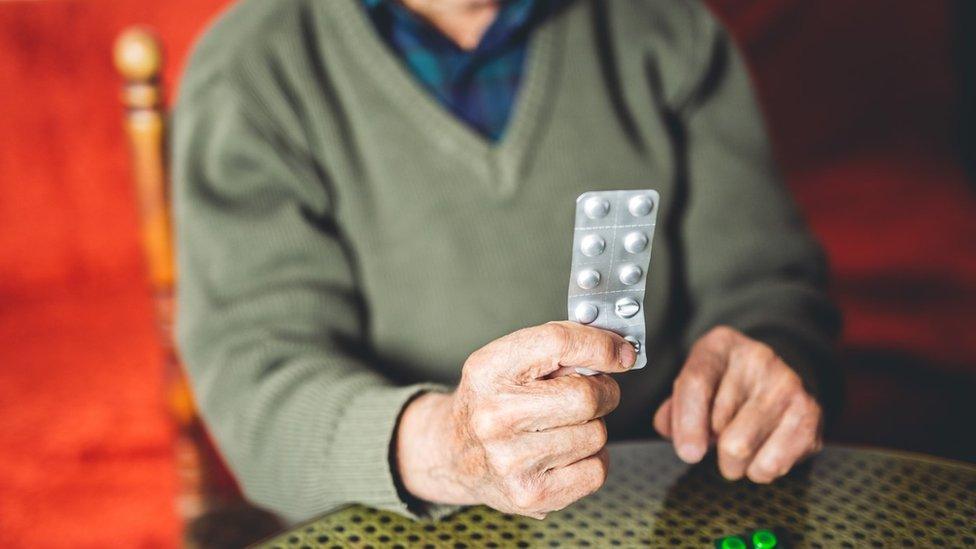Pharmacists make care homes safer, research suggests
- Published

The research found the presence of the pharmacists reduced harm
Basing pharmacies within care homes makes them safer for residents, new research suggests.
The six-year study, by the University of Leicester, trialled onsite pharmacies in 49 homes across the UK.
The research, which has been published in the BMJ, also suggested some GPs' workloads were reduced.
The professor who co-led the research said there had been "a significant reduction in potential future harm from medicines".
The study, named the Care Home Independent Pharmacist Prescriber Study (CHIPPS), was led by the university working alongside NHS Norfolk and Waveney.
It found care home residents were routinely prescribed an average of eight or more medicines.
Medicine use is considered to be one of the main areas of risk in care home settings by both the government and regulatory organisations.
Researchers said one study suggested 70% of care home residents experienced drug errors daily and there had been regular calls for interventions to help to improve the management of medicine.
'Important evidence'
CHIPPS conducted a randomised controlled trial in homes across England, Scotland and Northern Ireland.
The study involved 25 specially trained pharmacist independent prescribers who were integrated into homes to improve medicine management and safety.
The research found the presence of the pharmacists reduced harm and was well received by GPs, care home managers, care homes and residents.
The project leader David Wright, who is a professor of health services research and head of the university's school of healthcare, said: "I am delighted the culmination of this six-year programme of work, undertaken by an incredible group of researchers, clinicians and patient representatives has produced this result.
"Furthermore, our pharmacist-led intervention was reported by some GPs to reduce their workload as they no longer had to routinely review and authorise large numbers of repeat medicines and the pharmacist prescribers assumed some of their care home responsibilities.
"The results support expansion of the current pharmacist role in care homes, to include prescribing and frequent visits, as it reduces future harm from medicines and helps care homes to improve their management of medicines."

Researchers said one study suggested 70% of care home residents experienced drug errors daily
Prof Richard Holland, who co-led the project, said: "A significant reduction in potential future harm from medicines is... a predictor of future clinical benefit.
"This study provides important evidence for the development of models of care in care homes which we consider should include pharmacist independent prescribers."
The study also looked at whether onsite pharmacies could help reduce the number of falls by care home residents, and did not find a significant impact.
Prof Holland said: "Whilst it was disappointing that we did not significantly reduce falls, our process evaluation provided a potential explanation for this.
"Less than a quarter of pharmacist interventions were found to potentially reduce the likelihood of falls, with a small percentage increasing their likelihood."

Follow BBC East Midlands on Facebook, external, on Twitter, external, or on Instagram, external. Send your story ideas to eastmidsnews@bbc.co.uk, external.